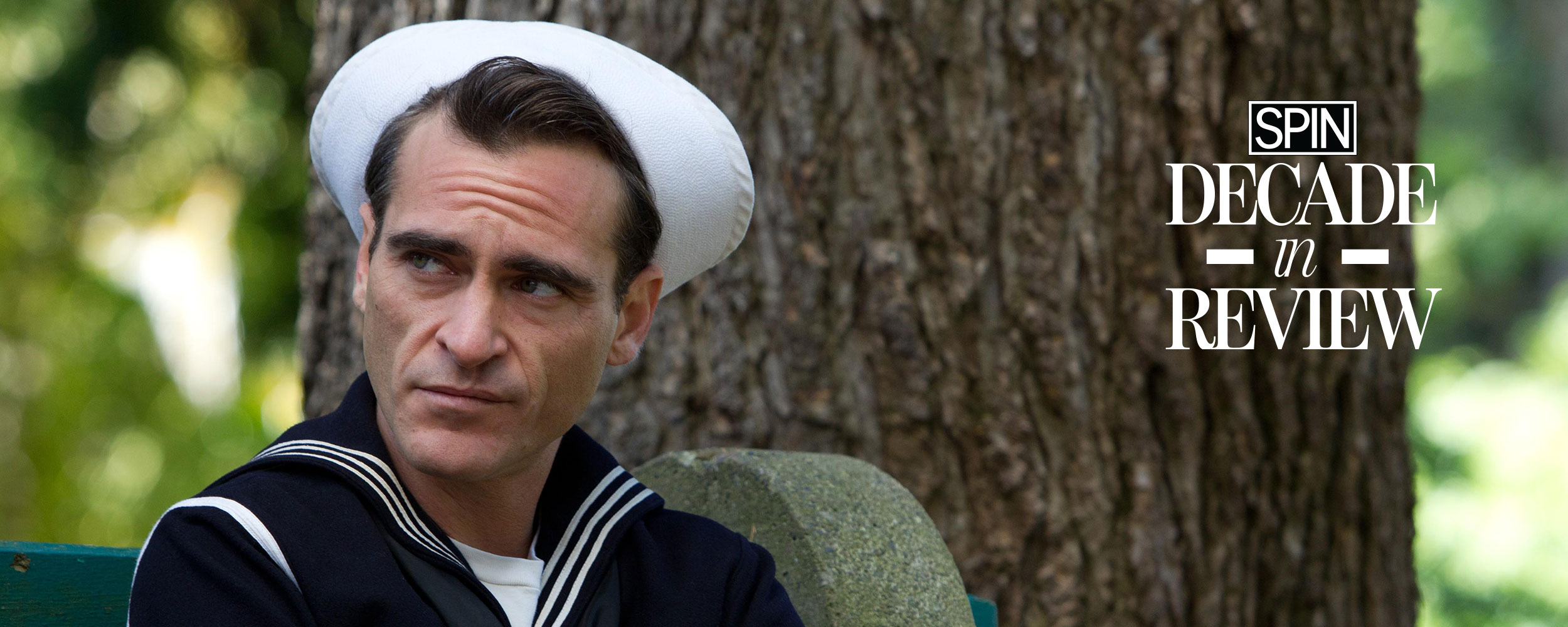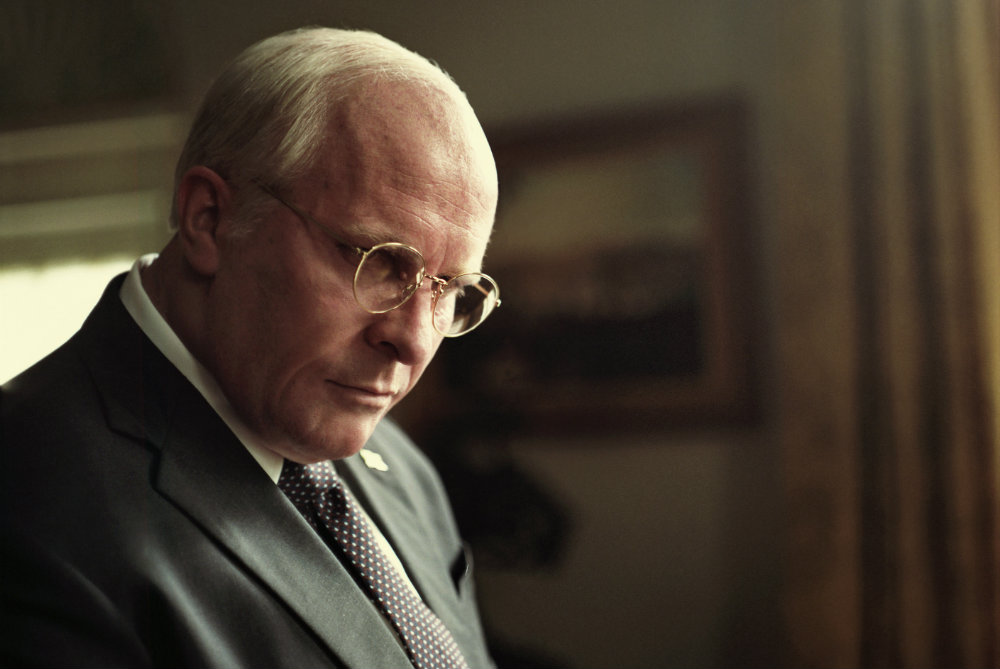This month, awards-season buzz about the Dick Cheney biopic Vice collided with the state funeral of former President George H.W. Bush, under whom Cheney served as Secretary of Defence. News coverage of the late commander-in-chief praised him as an icon of dignified leadership and the last great champion of civility, with little mention of his willful neglect of the AIDS epidemic, The Highway of Death, or the time his White House set up a high school student for a 10-year prison term.
Like fawning tributes to late presidents, biopics are typically flattering tributes reserved for artists, activists, and leaders—the Harvey Milks and the Freddie Mercuries—who made the world a more equitable place or left behind a celebrated cultural legacy. They are rarely centered around men like Cheney, taciturn charisma voids who eschew the spotlight as they enrich themselves in the guise of national security. But Vice writer/director Adam McKay revels in adapting the stories of large-scale crooks and charlatans to the big screen, as evidenced by The Big Short, his darkly comic treatise of the events leading up to the 2008 financial crisis.
Vice is a film ostensibly in the same vein, using dark humor, creative editing, and fourth wall breakdown to pack complicated information about corrupted people into a digestible and entertaining format. Perhaps the film’s greatest strength is the utter commitment of Christian Bale, who achieves an immersive rendering of the former vice president’s mannerisms: gravelly voice, perma-head tilt, eyes filled with naked contempt. Cheney has always felt intentionally distant and unknowable, and Bale does his best to get inside the head of a war criminal who thrives in polite society. His performance is complemented by the adept Amy Adams, who brings nuance and complexity to former Second Lady Lynne Cheney. Adams portrays Lynne as a brilliant, ambitious, and equally ruthless partner.

Also Read
30 Great Movies That Defined the 2010s
In McKay’s retelling, it’s Lynne who sets Cheney on the path to becoming the most powerful and destructive vice president in history when she sits him down after his second DUI and tells him to make something of his life. Though Bale and Adams are convincing as a committed married couple, the premise that Cheney’s ambition originates with his wife’s demand to get his shit together feels reductive. Vice never gets to the heart of what exactly drives Cheney’s thirst for power, a flaw that hangs over his ascent from a drunken Ivy League dropout to a shadowy power monger happy to trade the lives of others under egregiously false pretenses.
The second fateful incident in Cheney’s ascent occurs during a congressional intern orientation speech by then-GOP congressman Donald Rumsfeld (Steve Carell), who addresses the incoming class of coffee fetchers with the kind of smarm often mistaken for candor. “Rummy” is the kind of guy who people refer to as “a real son of a bitch” with equal parts revulsion and grudging awe, and the young Cheney is instantly taken by his sleazy charm. In McKay’s telling, Cheney is such an ideological empty vessel that he decides he’s a Republican simply because Rumsfeld is.
As fate would have it, Rummy is just as much a moral black hole as Roger Ailes, Antonin Scalia, George W. Bush, and every other then-minor player with whom Cheney connects as he navigates the halls of influence. Here we are treated to the origins of some of the most corrosive ideas in American politics, like Scalia’s passing mention of “unitary executive theory”—the idea that nothing a president does is illegal and therefore cannot be prosecuted. (More recently, this specious legal argument has been recycled by conservative pundits and opportunistic grifters in defence of President Trump.) In one telling scene, Cheney gripes that the problem with Nixon’s “sloppy” Watergate cover-up wasn’t that Nixon broke the law—it’s that he got caught.
To balance his character’s inherent ruthlessness, Bale’s Cheney is a devoted family man who’s fiercely protective of his wife and children, especially Mary (Alison Pill), who came out as a lesbian in high school. When he’s not running a major oil company or doctoring evidence for a highly profitable war, Cheney is seen enjoying outdoor lunches with his family on their sprawling lawn in a bucolic DC suburb and casually chatting about American Idol. Moments like these don’t humanize Cheney so much as render the banality of his evil. The reverse hero’s journey is rounded out with portrayals of Cheney’s victims—Iraqi civilians, members of the armed services, mentors who outlived their usefulness—represented through heavy use of archival combat footage, its resultant destruction, and the notorious images from Abu Ghraib prison. Jesse Plemons’ omniscient narrator, a combat veteran and middle-class dad with an undisclosed connection to Cheney, provides expository information before his true relation to the veep is revealed through violent and unlucky happenstance.
As closely as history ties Cheney to George W. Bush, the 43rd president is barely a supporting character here. In Vice’s telling, he’s barely a supporting character in his own administration. It’s a shame, because Sam Rockwell’s breezy portrayal is a joy to watch, even if playing W. as an oblivious and easily manipulated yokel lets him off the hook too easily. McKay has great fun highlighting Bush’s arrested development and life of privilege with prominently displayed set pieces in the then-Texas governor’s office, where loose M&M’s scatter across the desk and an autographed Nolan Ryan baseball nods to the time the young Bush purchased the Texas Rangers with funds pooled from his father’s friends.
Vice does not traffic in subtlety. Every edit, transition, and break of the fourth wall feels like a kick to the teeth, an anger born of frustration at the limits of collective memory and society’s eagerness to rehabilitate war criminals as folksy grandpas. It’s also a flawed movie—a fact McKay telegraphs in the opening disclaimer, admitting he did his “fucking best” to explain a man he finds to be an inscrutable cipher. Vice is tonally inconsistent and at times smug in its portrayal of a political swamp that launders reckless and self-serving policies into palatable soundbites for an ignorant populace. Still, it is cathartic viewing for those of us who spent eight years angry and demoralized by the only administration that did less to hide its naked corruption and apparent willingness to operate out of contempt for the law. When the legacies of men responsible for such staggering body counts seem to be absolved by nothing more than the passage of time, there’s no way to render Dick Cheney in light strokes.




